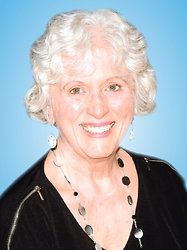Just like any other group, doctors come in all forms - good and bad, brilliant and not-so-brilliant, kind and stern, healthy and unhealthy.
I think that they start out idealistic, wanting to be what we want them to be.
Some stay that way, but some become disillusioned.

Yes, disillusioned.
They think that after they spend much of their youth studying and spending a fortune on education, that they will take care of sick people who will appreciate their care - and they will make a good living. Most of us do appreciate them and, until this past decade, most also made a good living.
Over this last decade, much changed in the healthcare industry. First, the insurance industry tried to manage our healthcare to cut soaring costs in an era of rapid technological advances. Medicine merged with bureaucracy. Doctors and their patients were all frustrated with red tape.
At the same time, some attorneys, most of who vigilantly guard our rights and defend the wrongly injured, started to encourage the greedy to get rich quick by suing doctors. We all know where that led. Gradually, over these many years of a developing litigious society, doctors had to think as much about protecting themselves from harm as about protecting us from harm. That's not what they signed up to do and, frankly, they are incredibly sad and increasingly angry about it. We patients should be as well.
Unfortunately, because doctors are very strong individualists, historically they haven't done well in groups. They seldom agreed to do anything together, making it difficult for them to police their own and try to heal the impaired among them. That made a bad situation worse, perhaps leaving a void for bureaucrats to point to and the greedy to jump into.
Gradually, over these many years of a developing litigious society, doctors had to think as much about protecting themselves from harm as about protecting us from harm.
That's not what they signed up to do and, frankly, they are incredibly sad and increasingly angry about it. We patients should be as well.
When the bad situation became epidemic, some insurance companies, which sometimes seem to be more about making profit than about insuring, decided doctors were a bad risk. Doctors lost their insurance. Then they had to decide if they wanted to continue practicing without insurance and risk everything they own.
So here we have it. The cost to doctors of protecting themselves from lawsuits is onerous, they are overwhelmed with paperwork, have to fight constantly for their patients' rights, and now find themselves without malpractice insurance. Also, as if this isn't enough, every year their reimbursements go down. Go figure.
Some very bright and dedicated human beings are wondering if they should take their considerable brains and talents into business instead of medicine. Will the best of our graduates opt not to become doctors? Where will that leave us?
I think it is time we talk to our own doctors and find out what we can do before they aren't there for us to talk to anymore. Just letting them know we really care will be a good beginning. Some of them have begun to band together to do something for themselves and it will go a long way for them to know that their patients see there is a problem and want to help them solve that problem.
It is past time for us to say thank you, to write thank you, to let our doctors know we are grateful for all the years of studying, getting up in the middle of the night, leaving hundreds of social occasions, and going the extra mile to help us live longer, healthier lives. Let's ask them not to leave us and their profession. Tell them someone cares - we care. We're their aces in the hole. If we are all they have, let's be enough!
Jean Loxley-Barnard has been a writer all her life and studied both sociology and psychology at George Washington University where she earned a B.A. Her company, The Shopper, Inc., encompasses all the Loxley-Barnard family publications - The Shopper Magazines and Doctor to Doctor Magazine. She has been in the advertising, consulting and publishing business for 39 years.

